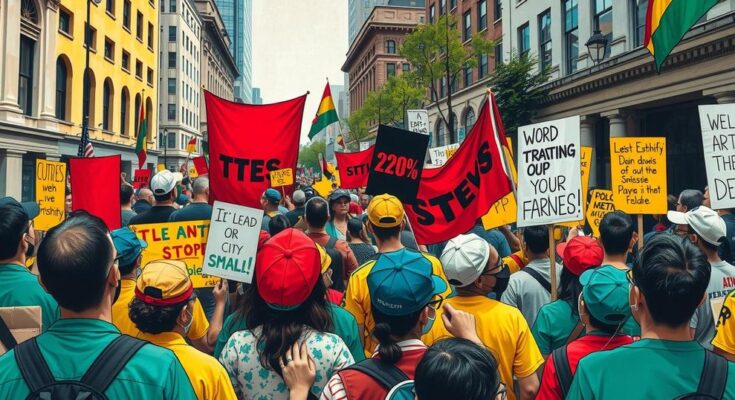A Colombian Senate commission recently rejected a labor reform proposal despite mass protests advocating for it, led by President Gustavo Petro. The proposed reforms aimed to improve worker rights significantly. Opposition claims included concerns over increased unemployment risk. Protests coincided with the vote, highlighting the escalating tensions between the president and Congress as the government struggles for support for its proposals.
A 14-member commission within Colombia’s Senate has rejected a proposed labor reform, despite widespread protests supporting it, organized by President Gustavo Petro. The vote reflected the stance of eight senators who had previously expressed their opposition to advancing the government’s labor proposal to the full Senate for further debate.
The proposed labor reform aimed to significantly enhance the rights of formally employed workers, aligning with international labor standards. Key aspects of the reform included:
1. Compensation for labor after 7 PM, on Sundays, and during official holidays.
2. Limitations on the use of temporary contracts for permanent job positions.
3. Provision allowing women to call in sick during their menstrual period.
4. Establishment of a minimum wage for students undertaking internships.
Opponents of the labor reform argued that it would lead to increased unemployment and complicate job searches for those seeking formal employment. This vote coincided with large-scale protests across various Colombian cities, demonstrating public support for the reforms.
In his address to protesters in Bogotá, President Petro advocated for ongoing demonstrations in favor of a referendum aimed at compelling Congress to legislate the proposed reforms. However, this referendum must first receive Senate approval, where the government currently lacks a definitive majority.
Tensions have escalated between President Petro and congressional opposition since he took office, particularly concerning the labor reform as well as proposed health and pension reforms integral to his campaign. With less than a year and a half remaining in his term, the president faces formidable challenges from liberal, conservative, and far-right factions, referred to as “Uribistas.” A successful referendum would obligate Congress to enact legislation that reflects public sentiment, regardless of individual political agendas.
In conclusion, the Colombian Senate commission’s rejection of the labor reform underscores the significant political divisions within the legislature, despite widespread public support. The proposed changes aimed to enhance worker rights but faced strong opposition from several political factions. President Petro’s calls for ongoing protests signal his determination to obtain legislative support for his key reforms over the remaining duration of his term.
Original Source: colombiareports.com




